Theatre in Pakistan: Curtain call
How long will it take to make theatre a part of the mainstream art scene?
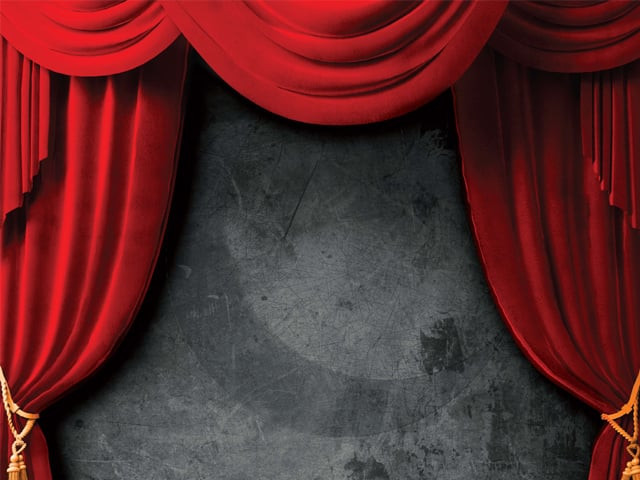
Tracing the art’s trajectory in the country, theatre came from two forums: the streets and the anglicized formal education institutes. As the freedom for personal expression stifled under political pressures, theatre came to the rescue as the mouth piece for reform. “The 1980s movement against Zia led to Non Governmental Organizations (NGOs) adopting theatre as a medium to create awareness. There’s severe alienation of classes in our idea of entertainment,” asserts Saeed.
When asked if the nexus of theatre has shifted from Lahore to Karachi, Saeed offers a balanced perspective, “Both cities were equally active initially. Lahore seemed more active since it was performing bilingually— in Urdu and Punjabi. In Karachi, the Christian and Parsi communities would hold plays in English and even Gujrati. Hence the plays in Karachi always had a more western flavour.” The observation holds true if one considers that Karachi’s most recent talent Nida Butt also produces American musicals for an English speaking elite audience.
Currently Pakistan offers a diverse flavour in theatre from socio-political commentaries that Ajoka, Baang, Tehrik-i-Niswan and Katha propagate, to National Academy of Performing Arts (Napa) and the Arts Council that perform literary plays to flamboyant musicals.
With such a vast breath of activity, one would feel that theatre has grown, but thespians such as Zain Ahmed of Napa differ, “We don’t see different brands of theatre. Yes, there are a lot of dramas being performed on stage but this quantity of work is not representative of a revival of theatre. We need to create original Pakistani dramas. The musicals that have cropped up are just an alternative to the elite English plays of the 1960s.”
A playwright who began his career with acting on stage, Vasay Choudhry says that he doesn’t see theatre as a political tool, “I just believe in providing entertainment and a creative person can always add a political bend to it but entertainment should be prime.”
Shortage of finances remains a predominant issue plaguing theatre in Pakistan. To date theatre is not seen as the ‘right’ profession for young people to enter. Vasay Choudhry confides that he never aspired to be just a theatre person. “I wanted to move onto television which was a natural progression for growth. Also there is more recognition, fame and money in broadcast than on stage.”
Napa, running mostly on governments grants, has also been bemoaning the lack of funds to pay real money to actors. “The sponsors are too scared to invest in theatre in the fear that a bomb might go off. This is exactly what the militants want to do, scare us enough for us to relinquish our public spaces to them,” says Zain Ahmed.
All thespians agree that people need to come out of their reserve and come watch plays to encourage theatre. But producers like Shah Sharahbeel fear that theatre will always remain a hobby and never become a viable and self reliant discipline.
But even apart from monetary aid, actors trained at Napa are forsaking the stage for the screen and writers for penning original scripts are rare to find. “The legends that are training actors at Napa, for instance, are not contemporary and innovative. They need to adopt new methods. The world has made huge progress and we are still stuck to our old ways,” states Sharahbeel.
1960’s
Kinnaird and Government College dramatic clubs would perform English and Urdu plays. These were plays performed by a select group for an elitist audience.
1970’s
The era heralds in democracy and theatre becomes more mainstream as the Ministry for Culture is set up alongwith the Lok Virsa and the Pakistan National Council for Arts (PNCA). Faiz Ahmed Faiz creates the blue print for culture for Bhutto.
1980’s
With Zia’s repressive military regime, censorship curtails topics on social and political change. A de-evolution of theatre begins as a response to which theatre groups such a Katha, Tehrik-e-Niswan and Ajoka emerge.
1990’s
Sifting of the groups that were established in the 1980s begins. Some survive while others dilute. Amateur theatre at English medium schools and colleges. Shah Sharabeel brings foreign musicals to local stage
2000’s
National Academy of Performing Arts established with Zia Mohyuddin presiding the institute. Napa Repertory Theatre Company (NRTC) established by Rahat Kazmi. Nida Butt brings in sensational musicals under her Made for Stage Productions.
Published in The Express Tribune, December 29th, 2010.

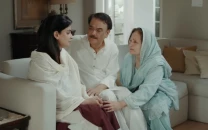
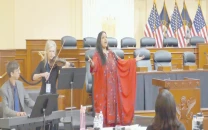
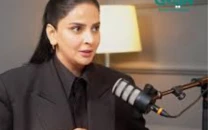


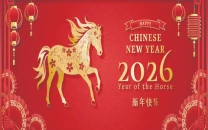












COMMENTS
Comments are moderated and generally will be posted if they are on-topic and not abusive.
For more information, please see our Comments FAQ